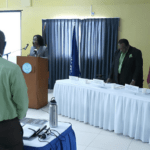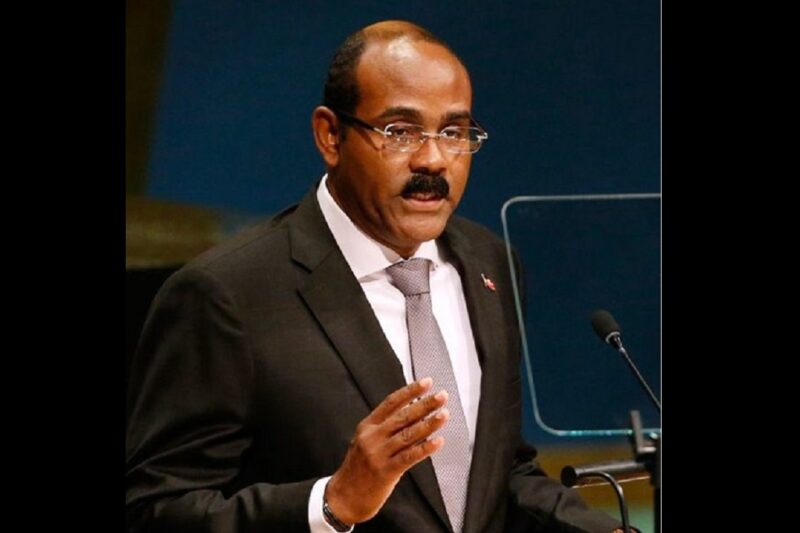
Members of the Antigua and Barbuda Workers Union have met with US officials to discuss several issues including the impact of Chinese developmental projects, migrant workers, and the lack of tripartite engagement.
the U.S. Embassy’s newly appointed Country Officer for Antigua and Barbuda, Ms. Tabitha Snowbarger and Amelia Swift, the Political Specialist in the Political Economics section of the U.S. Embassy, Bridgetown visited the ABWU recently.
They were gathering information on labor relations and workers’ rights for the 2022 Antigua and Barbuda Human Rights Report.
General Secretary of the ABWU David Massiah said much of the deliberations centered on concerns about the way Chinese developmental projects have been negotiated and executed.
Massiah contended that such projects brought little benefit for ordinary Antiguans and Barbudans, as the involvement of local labor had been limited to menial, low-paying jobs.
The General Secretary also noted that opportunities for skills transfers had been almost non-existent. Massiah further explained that the failure to train locals on maintaining Chinese equipment had created additional challenges for workers whose jobs depend on the functioning of this equipment.
He said some Chinese projects had violated environmental codes and disregarded local health and safety standards.
Meanwhile, Deputy General Secretary, Chester Hughes, urged that Caribbean governments should “stop looking towards fast-paced, competitive development and look towards slow-paced meaningful development.”
The Country Officer enquired about the conditions of employment for migrant workers. Massiah revealed that exploitation is common among this group of workers.
Hughes, in supporting this position, indicated that the current policy governing the issuance of work permits made it exceptionally difficult for migrant workers to navigate within the labor market.
He noted, for example, that presently, work permits are not transferable from one employment to another.
Consequently, migrant workers must pay for a new work permit each time they change employers.
Moreover, the Deputy General secretary explained that the cost of work permits has tripled in recent years.
Another area of concern that emerged during the discussions was the need for a tripartite approach toward the ratification and implementation of international conventions.
The General Secretary noted, for example, that there had been no consultations with stakeholders ahead of the ratification of ILO Convention 190. This resulted in certain anomalies that could have been addressed before ratification.
Further, Massiah insisted on the need for greater dialogue as Antigua and Barbuda joins the rest of the world in preparing for a “just transition” to more sustainable forms of energy.
He chided the government and its “just transitioning” team for attempting to use the Union only to “rubber stamp” its presentation to the COP22 meeting, as opposed to seeking a genuine exchange of concerns with regards to the impact on jobs.
The possibility for a resumption of training opportunities in Industrial Relations also formed part of the discussions.
The Union Officials identified three priority areas: Labour Statistics, Mediation, and Labour Inspection for Labour Practices. The U.S. Embassy Country Officer expressed interest in facilitating these training opportunities.





0 Comments